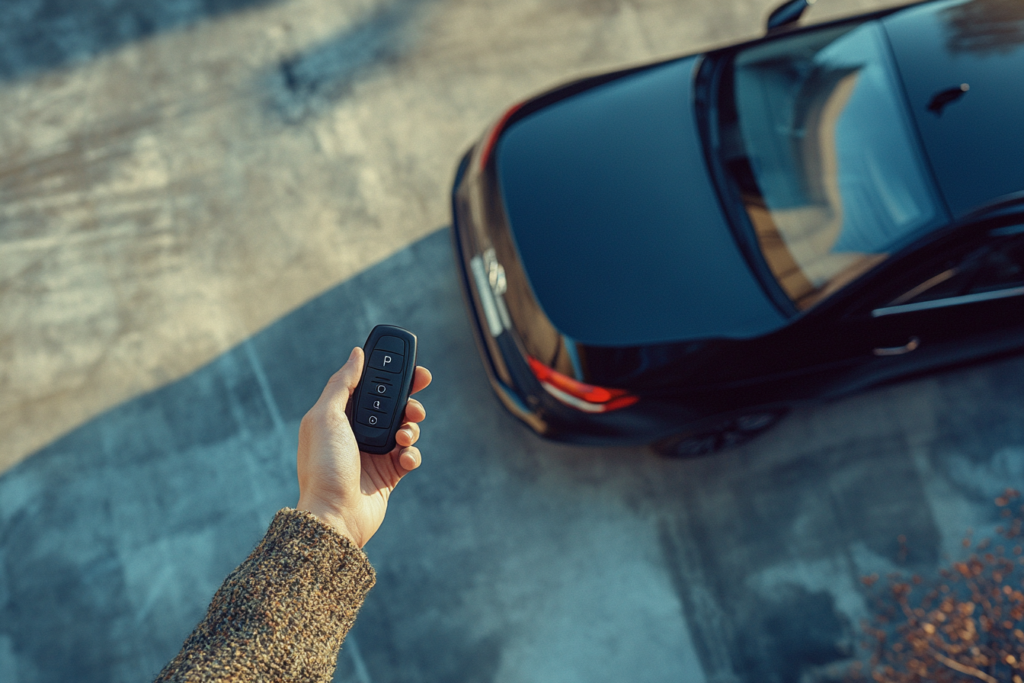In an age of keyless entry and automatic locks, it might seem outdated to manually lock your car. However, a surprising statistic reveals that approximately 50% of car thefts occur when vehicles are left unlocked. Did you know that despite advanced technology, the simple act of manually checking your locks could be the difference between keeping your car safe and becoming another statistic?
Why automatic locks aren’t always reliable

Modern vehicles often come equipped with sophisticated automatic locking systems, but these electronic components can malfunction due to various factors. Cold weather can affect key fob batteries, and electromagnetic interference can disrupt signals between your key fob and vehicle. Even something as simple as a weak key fob battery can prevent your automatic locks from engaging properly.
The reliability of manual locks comes from their mechanical simplicity. When you physically turn the key or press the lock button inside your car, you’re engaging a direct mechanical connection that doesn’t rely on electronics or wireless signals. This straightforward mechanism has stood the test of time for good reason.
Common scenarios where automatic locks fail
Have you ever walked away from your car, assuming the automatic locks engaged, only to return and find it unlocked? This scenario is more common than you might think. Automatic systems can be fooled by proximity – if you walk away but remain just within range, the system might not lock. Additionally, closing your trunk or rear hatch after activating the locks can sometimes cause the system to disengage without warning.
Electronic interference in parking garages or near power stations can prevent automatic locks from functioning correctly. A simple manual check takes just seconds but provides absolute certainty that your vehicle is secured. Consider installing a steering wheel lock as an additional visual deterrent.
Smart thieves know automatic lock vulnerabilities

Modern criminals have adapted to new car security features. They use signal boosters to extend the range of your key fob, making your car think the key is nearby when it isn’t. Some even employ signal jammers to prevent automatic locks from engaging when you press your key fob. Manual verification circumvents these high-tech attacks entirely.
What would happen if a thief used a signal booster while you were shopping? They could potentially gain access to your car even though your keys are safely in your pocket inside the store. This is why many security experts recommend using a Faraday pouch to block key fob signals when not in use.
The double-check method that experts recommend
Security professionals advocate for the “pull-handle check” – after locking your car, gently pull each door handle to verify it’s secured. This simple action takes mere seconds but provides absolute certainty. For additional peace of mind, visually confirm that all windows are fully closed, as even a small gap can compromise your vehicle’s security.
Make this verification process part of your routine every time you exit your vehicle. Just as pilots use checklists before every flight, create a mental checklist: lock, check handles, scan windows, proceed. This systematic approach ensures nothing is overlooked.
When manual locking becomes crucial

Certain situations demand extra attention to manual locking. When parking in areas with high radio frequency interference, such as near cell towers or power stations, automatic systems may fail. Similarly, extreme weather conditions can affect electronic locking systems, making manual verification essential.
During power outages or in remote areas, electronic systems might not function reliably. Manual locks continue to work regardless of external conditions, providing consistent security when you need it most.
Remember: your vehicle’s security is only as strong as its weakest link. Taking an extra moment to manually verify your car’s locks might seem old-fashioned, but it remains one of the most effective ways to protect your vehicle. The few seconds spent on this simple action could save hours of dealing with theft-related issues later.
